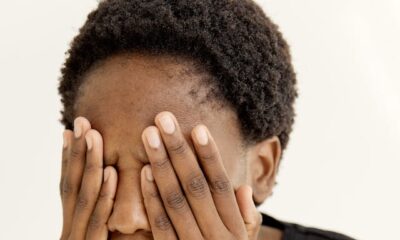Features
Chika Okorafor Aneke: Your Child’s Mental Healthcare Begins with You

In some parts of the world including Nigeria, when there are conversations about mental health, it often revolves around adults and not children. This needs to change. According to the Mental Health Foundation, 1 in 10 children under the age of 10 will have a mental health issue. Also, 50% of mental illness conditions begin to develop before age 14.
With these statistics in mind, it is evident that we need to shine a greater spotlight on mental health as it pertains to children, and what better time to start having these conversations than right now?
As a children’s mindful learning expert who has been a teacher and leader in both local and international educational institutions for over 25 years in the UK and Nigeria, I have seen, firsthand, the direct impact of children’s mental health on their self-image, academic performance, relationships with family and loved ones, and ultimately, the kind of people they become in life.
So, what does mental illness in a child look like? Often times, we may not instantly recognize it because it is masked and mistaken for ‘bad’, or ‘problem behaviour.’
When we observe disruptive behaviour in our children, rather than dismiss it with trite beliefs like “they are just being moody,” “boys will be boys,” “rebellious teenage phase, “fussy baby,” and so on, we must learn to dig deeper to explore the root causes of such behaviour, because, in some instances, these could signal the beginnings of mental illness.
Common early signs of mental illness in children include:
- Change in behaviour labelled ‘bad’ behaviour
- Lack of concentration
- Lack of attention
- Sulky or moody behaviour
- Poor or excessive sleep
- Sleep issues, Nightmares or sleepwalking
- Bedwetting
- Depression
- Food or eating issues
- Anxiety
- Panic attacks
- Self-esteem issues
- Withdrawal
- Lack of interest
- Physical illness
- Emotional or physical outbursts
- Pushing boundaries
- Aggressiveness
- Anger
- Risky behaviour and risk-taking
- Substance abuse
- Sexualised behaviour
- Self-harm
- Suicidality
- Narcissism or narcissistic tendencies
- Sociopathic or psychopathic tendencies
- Abuse of others
- Bullying or being bullied
- Attention-seeking behaviour
Please note that not all behavioural issues need therapy, and not all aforementioned symptoms are signs of mental illness. Remember that behavioural changes may not be long-lasting or too serious. Sometimes when children are feeling stressed out, they may exhibit a few concerning signs, but it usually subsides.
However, a major red flag is a change in mood or behaviour that lasts more than two weeks – this could be a sign of a developing mental illness. Research has shown that 10% of children and teens (aged 5-16 years) have a clinically diagnosable mental health problem, yet 70% of children and adolescents who experience mental health problems have not had appropriate interventions at a sufficiently early age.
When it comes to mental health, the truth is that it’s never too early to seek professional help for your children.
Contrary to cultural beliefs prevalent in many societies, meeting with a trained children’s mental health professional does not mean your child is crazy. It also does not mean you’re a lousy parent. Often times, for one reason or another, children just need a little extra support to help them reach their maximum potential.
Early intervention is key for successful diagnosis and treatment. Talking to a child behaviour specialist will help put your mind at ease, especially if there are actually no serious problems. If problems are diagnosed, the specialist can help address the problem before it degenerates.
***
Featured Image: Pexels


















